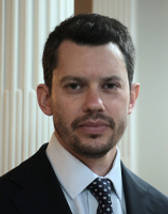Argentina’s Presidential Run-off is a Clash of Foreign Policies
Where opposing candidates Sergio Massa and Javier Milei stand in relation to the US, the UK and China should give a sense of which direction Argentina is tilting in next.
The next president of Argentina will need a clear path forward to deal with foreign policy. The country is facing a heavy financial crisis, and diplomacy may help to reverse the economic slump.
So far, there are few areas of international relations where the presidential candidates heading for a run-off on 19 November would appear to agree. Sergio Massa, the economy minister who led the first round with 36.66% of the votes, is a pro-state politician favouring tight relations with Brazil and China, two of the country’s main trading partners for exports. On the other side, Javier Milei, a libertarian who came in second place with 30% of the votes, is a revisionist, anti-state and pro-private investment outsider. Despite the Peronist coalition win over the weekend, Milei’s chances of taking the presidency are still promising if he manages to lure those who opted for the third candidate, the centre-right Patricia Bullrich, who captured 23.83% of votes.
Despite Argentina’s inflation rate of 138%, Massa is at an advantage as he has led his presidential campaign from his ministerial position, benefiting from governmental efforts to stabilise the economy. On the final leg of the campaign, the centre-left candidate announced an income tax reform and a new credit line from China worth of $5 billion, which will be used to inject currency into the domestic market and to help pay the $44 billion Argentinean loan owed to the IMF, which can be paid in renminbi.
The economic lifeline from China comes after Massa visited Beijing in June and President Alberto Fernández embarked on an official high-level visit this month. While in Shanghai, Fernández met with former Brazilian President Dilma Rousseff, who is currently the head of the BRICS bank, to discuss Argentina’s membership. Massa’s push for strong relations with China demonstrates his sympathy for Beijing’s wider plans involving those emerging countries that have shown interest in a counter-West world order. Argentina’s invitation to join the BRICS earlier in the year and Brazil’s newfound multilateralism put Massa in a strong position both regionally and further afield, helping him to sell his foreign policy agenda to voters. Will the people reward Massa’s internationalism?
Milei frequently waves a chainsaw, half-jokingly, to rally his supporters to the idea of state austerity
Massa’s pick for foreign policy advisor demonstrates his preference for status quo. Gustavo Martínez Pandiani is a career diplomat and ambassador to Switzerland with previous postings to the US, Jamaica and Barbados. He has also headed the Ministry of Foreign Affairs’ secretariat for Latin America, and participated in Massa’s working group dealing with multilateral credit institutions such as the Inter-American Bank, IMF, Saudi Fund for Development and World Bank, which are providing financing and technical assistance to the country. Martínez Pandiani has been posted twice to Washington, and reports place him closer to Washington than to Venezuela, Cuba or Nicaragua. But his true colours are still to be seen. During the last meeting of the Community of Latin American and Caribbean States (CELAC) in Buenos Aires, he referred to ‘all countries in CELAC being democratic’, which earned him criticism from opponents of the Caracas and La Habana regimes.
Javier Milei remains dubious of the state’s role in diplomacy and prefers a private sector-led strategy. He has said that Argentina belongs to the Western world, flagging the US and Israel as natural allies and promising state visits if elected president. He is keen on dollarisation and opposes the idea of using other currencies, including Argentina’s peso. His foreign policy advisor, the economist and professor Diana Mondino, has argued that Argentina should remain a close observer of world conflicts and contribute to resolving them in different ways. Mondino has taken a softer approach compared to some of Milei’s more radical promises, such as cutting relations with Brazil or eliminating the Southern Common Market (Milei said he ‘wouldn’t work with communists’).
Massa’s campaign has been critical of Milei’s proposals to drastically cut the government’s public spending and to sever ties with Brazil and China, stating that ‘1,500 small to mid-sized business’ would be at risk and ‘over two million employees [could lose] their jobs.’ Milei frequently waves a chainsaw, half-jokingly, to rally his supporters to the idea of state austerity. Mendino, however, has been less clear on where a potential Milei government would stand on regional issues, arguing vaguely that Argentina and South America should enhance economic, social and cultural opportunities. She has also been unclear about Argentina’s posture on global issues such as climate change. Massa, meanwhile, recently told reporters that he is determined to revitalise the mining sector. Speaking to El Mercurio newspaper, he stated that his proposals for the region would include strengthening relations with Brazil, Uruguay, Bolivia and Chile to revamp joint industrialisation and energy security.
The Falklands Issue: ‘Sit Down with the English’
Milei and Massa also disagree over Argentina’s claim to sovereignty over the Falkland Islands. Irrespective of political tendencies, Argentina’s political establishment has kept strongly to its position since the 1982 war with the UK, and Milei is not risking anything. He has said publicly that he favours diplomacy and would prefer a devolution strategy mimicking the Hong Kong–China model. However, Milei is keen on negotiating with the UK. ‘We have to sit down with the English, since there was a war and they beat us, and tell them, “Look, the Islands belong to Argentina”, so we must find a way to overcome the dispute. We need a long-term agreement which means the Islands will return to us, but in no way involving violence or force, and taking into account the position of the people who live there’, Milei said in a televised interview. Meanwhile, Martínez Pandiani, speaking on behalf of the Massa campaign, said that ‘in the Malvinas Cause, our priority is the fallen, the ex-combatants and their families, not the islanders’, criticising Milei’s less confrontational stance.
If Milei wins, his government could look a lot like the previous administration of Mauricio Macri, which attempted to reverse years of Peronist foreign policy
Milei has also been vocal about potential scenarios where the use of force may be needed, dismissing the possibility of Argentina posing a threat to the islands that would incite a response from the UK. ‘Argentina is in no condition to resist an attack, we have virtually no defence, it has been dismantled, but luckily, we live in a peaceful neighbourhood, we don’t have enemies among our neighbours’, he said. The Argentine defence community has long awaited a modernisation of its capabilities, and it may get one soon. The US signed off the transfer of 24 F-16 fighter jets from Denmark to Argentina, considered by some observers to be a sensible upgrade for the Argentine military while not posing a menace to the RAF. As Argentine defence expert Juan Battaleme argued, the F-16 jet fighter ‘has more value as a confidence-building measure among regional partners like Chile and Brazil, and for the possibility of sharing airspace control over the ocean with the UK’.
Can Milei Turn into a New Macri?
If Milei were to win in November, his government could look a lot like Mauricio Macri’s right-wing administration (2015–2019) that attempted to reverse years of Peronist foreign policy. Macri pursued a centrist agenda and sought to extend a hand to the UK, proposing a new type of relationship while still pressing Argentina’s claim to sovereignty over the Falklands. Macri, however, enjoyed cordial relations with other right-wing regional governments, especially as he coincided with former President Sebastián Piñera in Chile. Abroad, Macri befriended other right-wing leaders such as David Cameron. Milei, meanwhile, could see a predominantly leftist neighbourhood, including Lula da Silva in Brazil, Gabriel Boric in Chile, and potentially a leftist ruling party candidate to succeed Andrés Manuel López Obrador in Mexico.
The alliance between Macri and Milei has served both figures well. The libertarian candidate secured a seasoned ally who could show him how to court the political centre. In return, Milei wants to capitalise on Macri’s reputation. ‘If I am president, Macri would have an outstanding role as Argentina’s representative. He would be a figure above the Ministry of Foreign Affairs and others... a representative of the country, I do not know how to define it, the figure would have to be created, but I think he is someone who can open markets’, Milei said in August.
Argentinean foreign policy has turned out to be very pragmatic. Macri came to power with an agenda that looked towards China with wary eyes, but soon afterwards he changed gears and fell for Beijing quite heavily. Argentina sought in China an ally to mitigate its economic problems and conceded to many demands from Beijing, including the currency swap deal, and agricultural, technological and investment deals. If Milei is elected, will he experience a diplomatic U-turn of his own on China? Whoever wins is unlikely to cut ties with either the West or the East, as Argentina is facing such economic disarray that it can’t afford to narrow its diplomatic options.
The views expressed in this Commentary are the author’s, and do not represent those of RUSI or any other institution.
Have an idea for a Commentary you’d like to write for us? Send a short pitch to commentaries@rusi.org and we’ll get back to you if it fits into our research interests. Full guidelines for contributors can be found here.
WRITTEN BY
Dr Carlos Solar
Senior Research Fellow, Latin American Security
International Security
- Jim McLeanMedia Relations Manager+44 (0)7917 373 069JimMc@rusi.org


